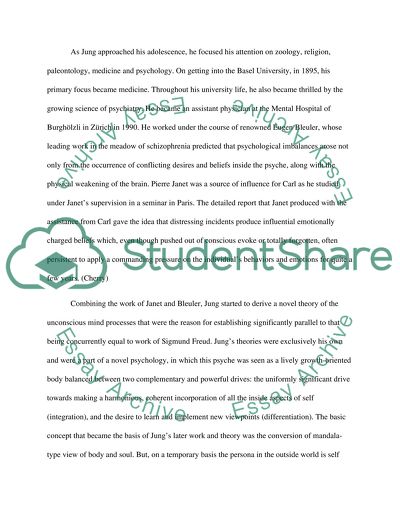Cite this document
(“Carl Jung Essay Example | Topics and Well Written Essays - 1250 words”, n.d.)
Retrieved from https://studentshare.org/philosophy/1446735-carl-jung
Retrieved from https://studentshare.org/philosophy/1446735-carl-jung
(Carl Jung Essay Example | Topics and Well Written Essays - 1250 Words)
https://studentshare.org/philosophy/1446735-carl-jung.
https://studentshare.org/philosophy/1446735-carl-jung.
“Carl Jung Essay Example | Topics and Well Written Essays - 1250 Words”, n.d. https://studentshare.org/philosophy/1446735-carl-jung.


